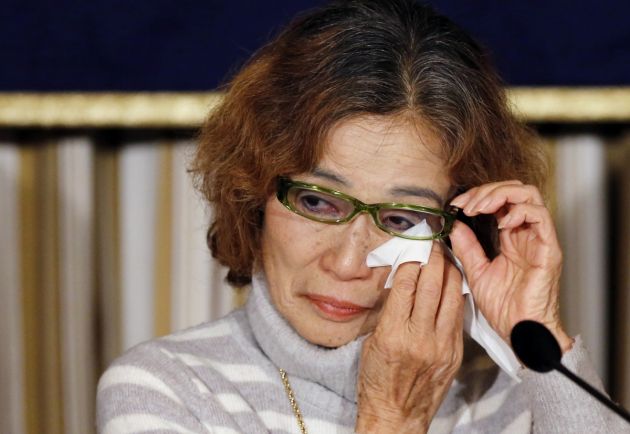ISIS Demands Release of Captured Suicide Bomber in Exchange for Hostage Kenji Goto

The Islamist terrorist organization ISIS is now demanding the release of Sajida al-Rishawhi, an alleged suicide bomber captured in 2005, in exchange for the release of hostage Kenji Goto. ISIS released a video last Saturday with a voice narrator purported to be Goto saying that he would be freed in exchange for al-Rishawi's release. The video also claimed that the other hostage, Haruna Yukawa, had been beheaded after the deadline for the $200 million ransom passed without payment.
Shinzo Abe, Japan's Prime Minister, acknowledged that the video was likely real, according to an NBC News report. "Fully aware of unbearable pain and sorrow that his family must be feeling, I am simply left speechless. Such an act of terrorism is outrageous and impermissible, which causes me nothing but strong indignation. Thus I express resolute condemnation," he said in a statement.
Abe reiterated that the Japanese government continues to do everything in its power to free the remaining hostage. Yoshihide Suga, Chief Cabinet Secretary of Japan, reported that Japan is working in conjunction with other countries such as Jordan to secure Goto's release. He admitted, however, that the Japanese government has yet to make contact with hostage-takers.
The sudden change in ransom demands is suspected to be a propaganda tactic by ISIS, according to an expert in an NBC News report. Karima Bennoune, an international law professor at the University of California, speculated that al-Rishawi's familial and organizational ties to ISIS leaders play a major role in why her freedom is now sought by the terrorist group.
"However, it is also likely that ISIS has sought to switch its ransom demands for propaganda purposes, to position itself — wrongly — as a defender of Muslim women," she said. Bennoune pointed to a term used in the video, "imprisoned sister", and linked it to a potential propaganda plot.
